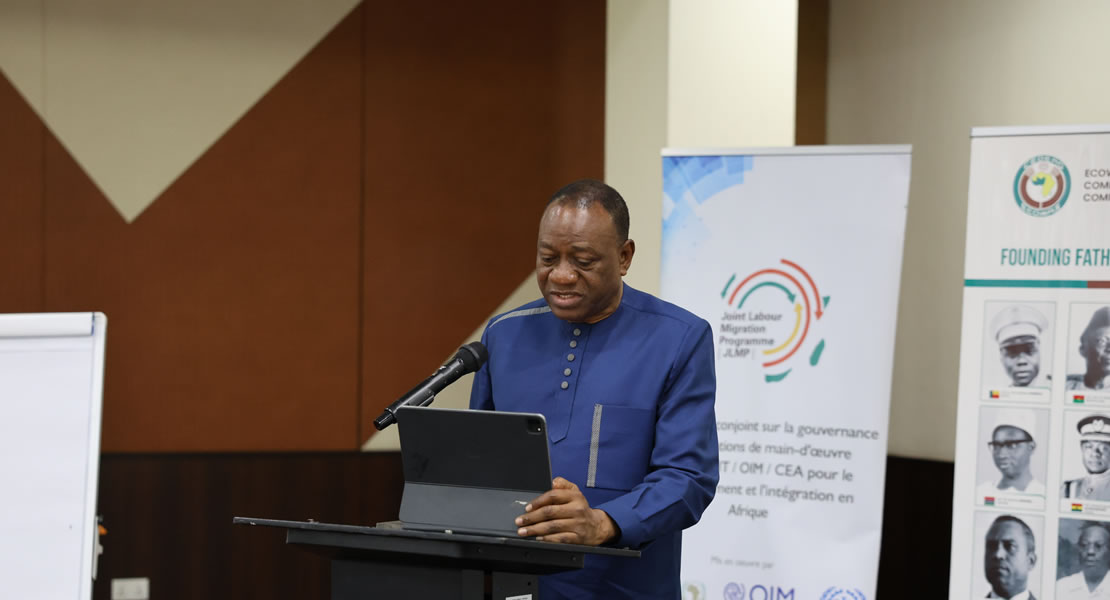
Ghana’s Minister for Labour, Jobs and Employment Dr. Abdul Rashid Hassan Pelpuo has called for the turning of the Economic Community of West African States (ECOWAS) policy on free movement protocol from words to reality for citizens of the community.
According to him there is the need to simplify the frustrating work permit process that pushes people into irregular status by making the labour market data systems to talk to each other so that workers can find real opportunities.
He made this remarks in Accra Ghana at the opening of a three day ECOWAS validation meeting of labour migration strategy and action plan.
“We must harness migration’s development potential like never before. Imagine if just 10% of remittances flowing into our region annually could be channelled into productive investments. Picture the growth if we systematically connect diaspora expertise with local businesses. This Strategy gives us the framework to make these visions reality”.
Let us remember that the work you do over these three days will echo across millions of lives because throughout our history, movement has been part of the West African story.
Today, we have the chance to write a new chapter, one where mobility means opportunity; where borders don’t mean barriers, and where every migrant worker can say with pride that they helped build our region’s prosperity, he stated.
“To our esteemed partners, the IOM, ILO, and all others in Ghana and the region, your support remains invaluable, and we deeply appreciate your continued collaboration in this effort”.
Let me reaffirm the unwavering commitment of Ghana through the Ministry of Labour, Jobs and Employment, in aligning our labour migration policy to this strategy in our upcoming review to ensure a well-regulated labour migration system that prioritises the protection of migrants and maximises migration’s benefits.
Ghana, as a steadfast advocate for regional integration and migrant rights, is privileged to facilitate this dialogue toward a more equitable and prosperous West Africa”.
He indicated that the World Bank (2024) reports that about 3.7 million migrant workers moving between our countries represent more than statistics, they are people seeking better opportunities, skilled professionals transferring knowledge, young graduates chasing dreams, and entrepreneurs building bridges between our economies.
This promise of mobility comes with persistent challenges that demand our urgent attention.
How many of our people must endure exploitation before we strengthen protections? How many skilled workers must see their qualifications go unrecognized before we fix our systems?
How many families must be separated by dangerous irregular routes before we create safer pathways? These are the human questions behind our technical discussions today, he added.
Kwaku Sakyi-Danso/Ghanamps.com